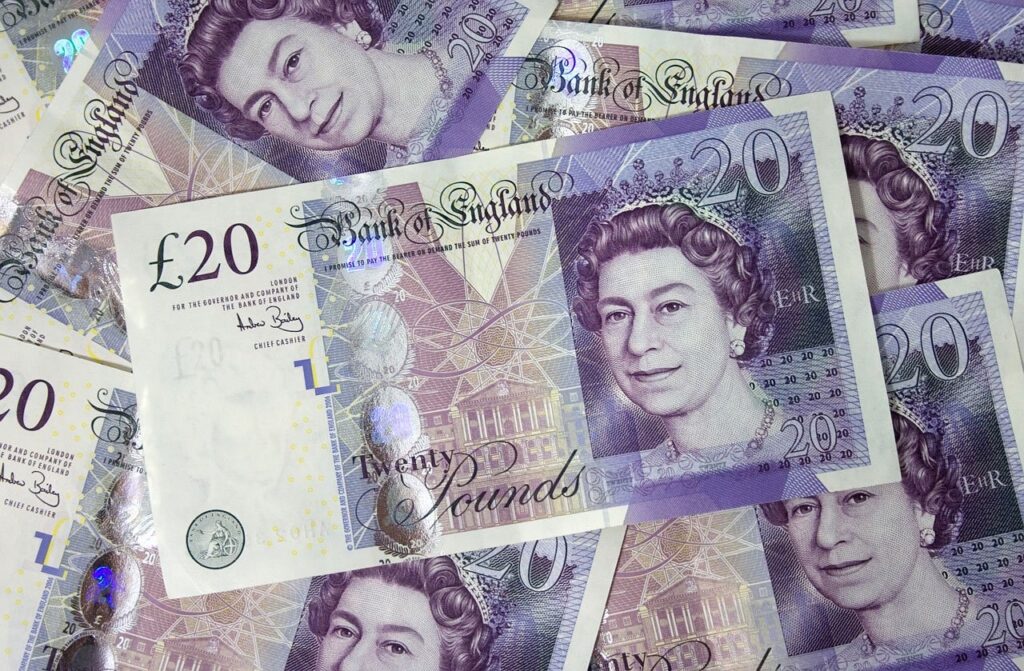In the United Kingdom, a common query is whether shops accept damaged or torn banknotes. Despite these notes not being in perfect condition, they may still retain their original value. However, the acceptance of such notes often hinges on the degree of damage and the individual retailer’s discretion.
Here at BestCasino HQ, we will delve into the nitty-gritty of whether shops are obliged to accept ripped notes and how one can deal with damaged currency.
Are Ripped Notes Still Valid Legal Tender?
Contrary to widespread belief, the Bank of England asserts that a banknote that has suffered some damage or tearing may still be valid, provided that at least half of the note remains intact. This criterion is established by the Bank of England’s Mutilated Notes service, a system devised to reimburse individuals for accidentally damaged or mutilated banknotes.
Nonetheless, it’s crucial not to misconstrue the term ‘legal tender’, which signifies a narrow and technical meaning in settling debts. If a debt is tendered in court, an individual attempting to settle it using legal tender cannot be penalised for non-payment.
In the case of ripped banknotes, understanding that the concept of ‘legal tender’ has little relevance in everyday transactions is paramount. It does not dictate that the recipient must accept the money as a form of payment, leaving the acceptance of ripped or damaged banknotes at the retailer’s discretion.
Do Shops Accept Ripped Notes?
In the UK, shops are under no legal obligation to accept damaged or ripped banknotes. Whether to accept such a note as payment for goods or services is entirely up to the retailer. This principle should not be confused with ‘legal tender’, which is only relevant in the context of settling debts.
Even though the Bank of England may deem a ripped note valid and possibly replace it, this doesn’t mean that shops are bound to accept it. The decision to accept or reject a damaged note as payment is solely at the retailer’s discretion.
See Our Top-Rated Online Casinos
Find the best online casino bonuses, read reviews from real players & discover brand new casinos with our list of recommended sites
Can Shops Refuse Ripped Notes?
The acceptance of damaged notes as payment is not dictated by any legal obligation and rests completely on the retailer’s discretion. Therefore, shops are within their rights to refuse a ripped or damaged note as payment for goods or services. The key takeaway is not to confuse the principles of ‘legal tender’ with acceptance of payment.
Will The Post Office Change Ripped Notes?
In cases where a bank refuses to accept a torn or damaged banknote, individuals can resort to the Mutilated Notes service provided by the Bank of England. This service aims to reimburse individuals who accidentally end up with damaged banknotes.
However, the damaged note must meet certain criteria to be considered for reimbursement. Primarily, at least half of the banknote must be intact. The banknote must be posted, and the bank does not accept damaged banknotes in person.
So, while the Post Office is unable to change ripped notes, the Mutilated Notes service can change ripped or damaged notes.
What To Do With Ripped Notes
If you find yourself in possession of a damaged or potentially counterfeit banknote, the Bank of England’s Mutilated Notes service can be a valuable resource. However, it is always best to inspect banknotes carefully and refuse any that appear damaged, counterfeit, or stained with dye in the first place.
If a retailer refuses to accept a damaged note, remind them they can send the note for checking, and if it’s damaged, it will be replaced. However, it is still up to them whether they accept it or not. This solution can be trickier when dealing with informal money exchanges between family and friends. Still, the advice is the same: try not to accept damaged or potentially counterfeit banknotes if you can help it.
However, if you do come to be in possession of a ripped or damaged note, you can send it to the Bank of England to get it reimbursed.
In summary, ripped or damaged notes may still hold their original value; however, their acceptance is down to the retailer’s discretion. Always remain vigilant when dealing with cash and, if possible, refuse any notes that look damaged. Refer to the Bank of England’s website for more information on what to do if you have a damaged or ripped note.





